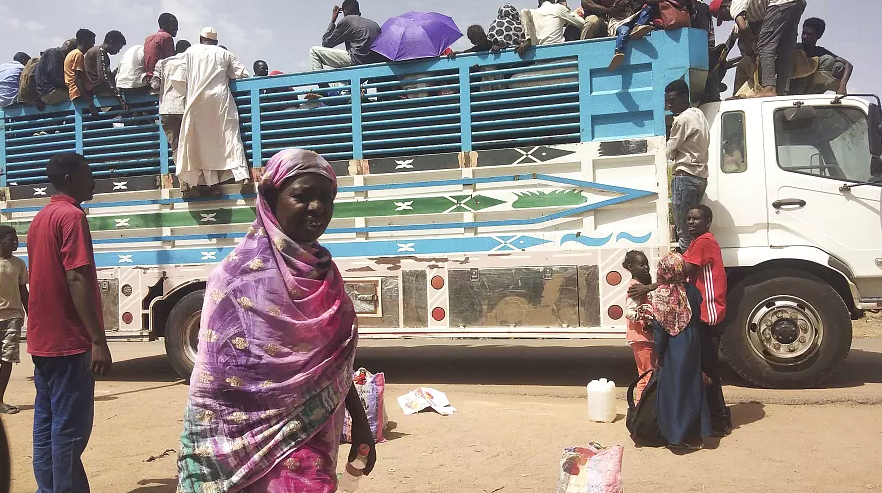Sudan war: Sudan is on the verge of starvation owing to unstable conditions and an absence of assistance, according to humanitarian organizations, who have been sounding the alarm for the past year during the conflict.
On Monday, the fight that started a year ago between the Rapid Support Forces, led by Gen. Mohammed Hamdan Dagalo, and the Sudanese military, under the command of Gen. Abdel-Fattah Burhan, will celebrate its first anniversary.
Thousands have died and eight million have fled their homes in search of safety in neighboring countries or within Sudan, according to UN data.
But Sudan is on the brink of starvation due to the terrible circumstances and inadequate assistance.
Humanitarian organizations in Sudan are now primarily concerned on food security. In a dire warning issued last month, the world’s foremost hunger crisis expert emphasized the critical need for swift measures to save lives, save livelihoods, and forestall a devastating food shortage in Sudan.
The Integrated Food Security Phase Classification (IPC) announced that it couldn’t update its evaluation from December owing to security concerns and limited access. According to the IPC, 17.7 million people in Sudan were experiencing severe food insecurity at that time, with approximately 5 million people on the verge of starvation.
Adam Mohamed, who is both the Director-General of Youth and Sports and a member of the Supreme Committee for Shelter Centers, brought attention to the difficulties in meeting the needs of the many displaced persons who have arrived in Kassala State in terms of services, particularly medical assistance.
The United Nations Office for the Coordination of Humanitarian Affairs (OCHA) reports that production of food has decreased, imports have been hindered, and staple food prices have increased by 45 percent in less than a year since the war began.
War has made it much more difficult to transport food across the nation, particularly to the more remote and rural areas where most people live. According to the organization’s research, more than 37% of the population is now facing severe hunger as a result of this.
Reports of individuals dying from starvation and having to eat tree leaves or food only once every three days were brought to the attention of Justin Brady, head of OCHA in Sudan. In order to stop the worst damage from happening in Khartoum, Darfur, and the Kordofan region, he pleaded with the international community to put pressure on the warring parties to end the fighting, increase funding for the UN response plan (which is just 5% financed this year), and grant access to those areas.
Afaf Abd Alrasool, a Sudanese woman currently living in Kassala State after being displaced from Khartoum, stressed the critical need for aid, especially for children in need of food, clothing, housing, clothing, and medical care.
The country was thrown into anarchy eighteen months before to the war’s commencement when Burhan and Dagalo both conducted military coups. After the military coup that deposed longstanding Sudanese tyrant Omar al-Bashir in 2019 in response to a popular revolt against his thirty-year rule, they deposed a globally recognized civilian administration that had been charged with guiding the country’s democratic transition.
After years of military and Islamist control, the aspirations of the Sudanese for democratic rule were shattered by the coup and subsequent conflict, which relegated Sudan to the status of an outcast state for decades. Earlier this year, experts from the United Nations informed the UN Security Council that the violence in Darfur is at its highest level since 2005.


















